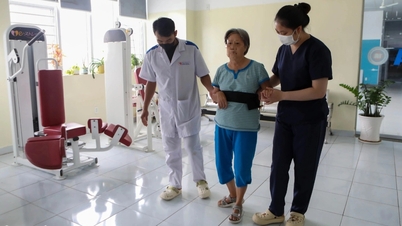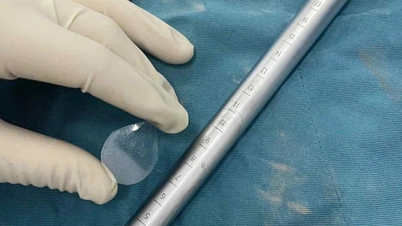My father had a stroke and was given timely emergency care. Recently, he has been having trouble sleeping. How should he be treated? (Phuong Dung, Ho Chi Minh City)
Reply:
Stroke causes damage to the brain structure, depending on the severity, it can disrupt the sleep system. Stroke also affects other parts of the body such as weakness in the limbs, movement disorders, sensory disorders, body aches, making it difficult for the patient to fall asleep, waking up frequently, and disrupting REM sleep behavior (rapid eye movement sleep).
People with REM sleep behavior disorder may often experience screaming, teeth grinding, punching, and kicking during this stage of sleep.
Your father's insomnia and difficulty sleeping may be due to a history of stroke or other neurological diseases. First, you need to find the cause.
You should take your father to a neurologist, the doctor can measure polysomnography. This is a non-invasive technique, combining the features of many different devices to evaluate the physiological function of sleep in patients. For example, the machine has an EEG channel to measure changes in brain waves during sleep. Eye electrode channel, electromyography track eye movements and muscle movements. Respiratory parameter channel helps to examine the patient's breathing rate, blood oxygen level, heart rate, blood pressure while sleeping.
The machine also has an automatic image and sound recording system, helping to accurately diagnose neurological diseases that cause sleep disorders. From there, the doctor prescribes the appropriate treatment method.
Some medications used to prevent stroke recurrence, stabilize blood pressure, and treat underlying conditions after a stroke can affect sleep. Medications used to treat sleep disorders can also interact with medications used to treat strokes. Patients should take medication as advised, prescribed, and closely monitored by a doctor.
Dr. Le Van Tuan
Director of the Center for Neuroscience
Tam Anh General Hospital, Ho Chi Minh City
| Readers ask questions about neurological diseases here for doctors to answer |
Source link







![[Photo] Hanoi morning of October 1: Prolonged flooding, people wade to work](https://vphoto.vietnam.vn/thumb/1200x675/vietnam/resource/IMAGE/2025/10/1/189be28938e3493fa26b2938efa2059e)





























![[Photo] Panorama of the cable-stayed bridge, the final bottleneck of the Ben Luc-Long Thanh expressway](https://vphoto.vietnam.vn/thumb/1200x675/vietnam/resource/IMAGE/2025/9/30/391fdf21025541d6b2f092e49a17243f)























































Comment (0)